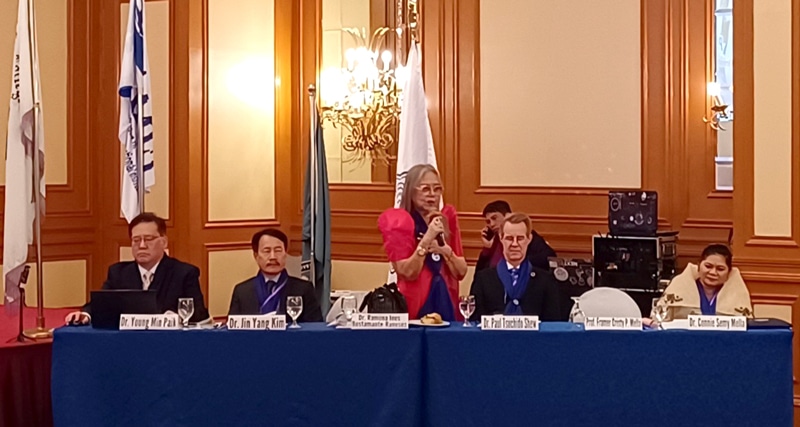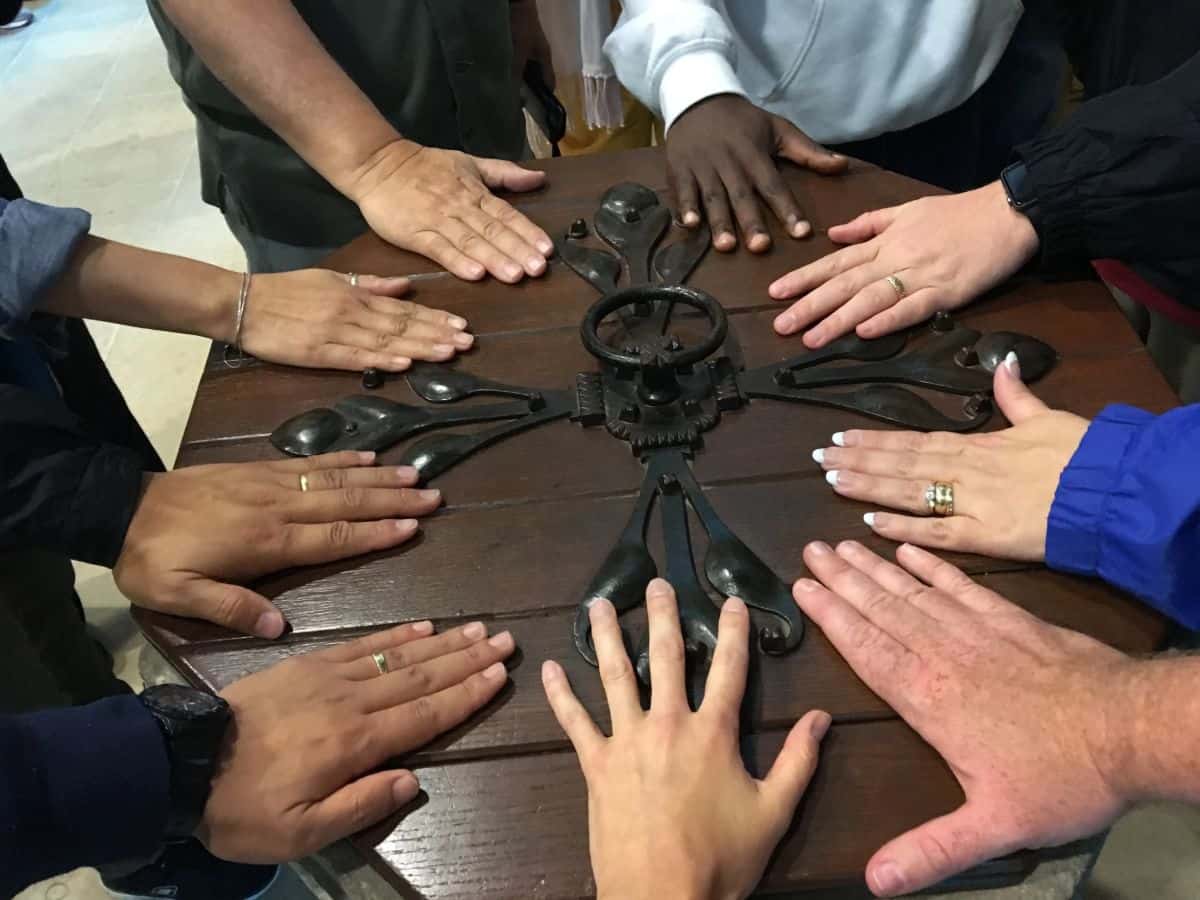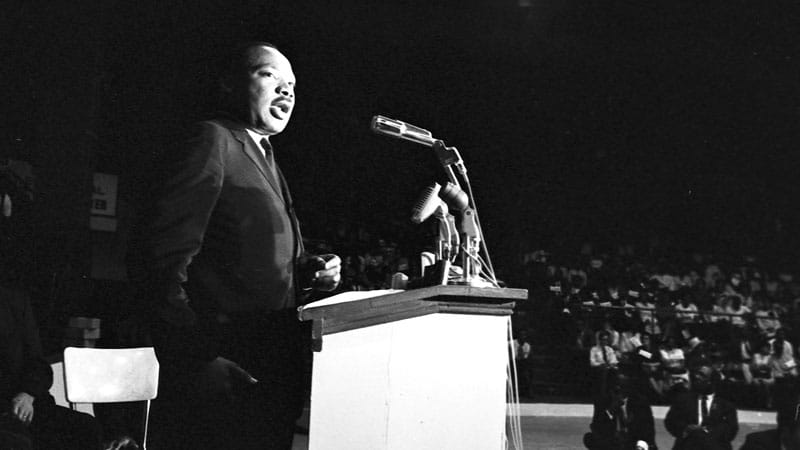Opportunities and Challenges for Campus Ministry
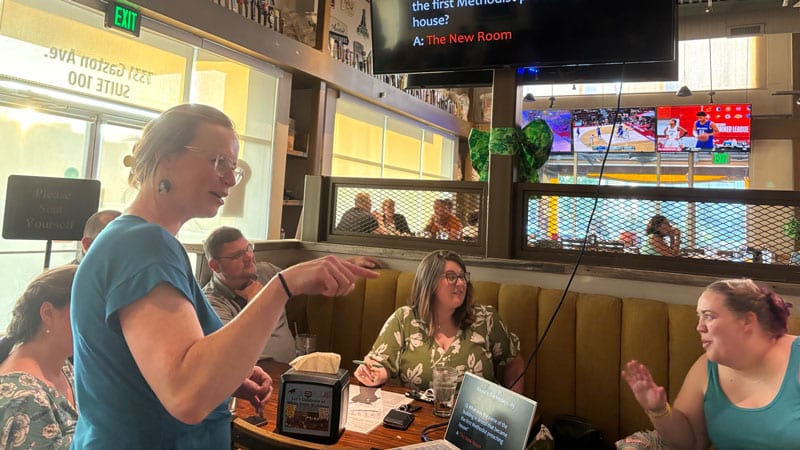
Dr. Ashley Boggan, General Secretary of the General Commission of Archives and History, leads a Methodist pub quiz during the UMCMA Summer Institute in July. Photo by Philip Wingeier-Rayo
August 28, 2025 | By Philip Wingeier-Rayo
As college first-year students settle into dorm life, campus ministers are among the first to welcome them. Many of these students were active in their local churches — attending Sunday school, Vacation Bible School, confirmation classes and youth groups. Yet, only a fraction will remain active in faith communities during college.[1] Campus ministers face the challenge of connecting with students and helping them find a faith community amid the demands of college life.
Students juggle academics, curricular and co-curricular activities. Given the financial realities of college students, 44% work and many upper-class students have internships or fellowships.[2] Attention to one’s spiritual needs can get crowded out of a students’ weekly schedule.
This summer, I represented the General Board of Higher Education and Ministry at the Summer Institute of the United Methodist Campus Ministers Association in Dallas. The plenary sessions and workshops, along with informal conversations reminded me of my time on the faculty at Pfeiffer University, which had an active campus ministry. Today, higher education is in crisis, and students are facing rising tuition costs and mounting student debt.
Even so, I was inspired by the persistence of campus ministers to reach students by creating an inviting space on campuses around the country and the world to welcome students into a faith community. They do this knowing that every year they will lose one-fourth of their congregation to graduation and others to transfers. It is emotionally taxing for campus ministers to plant seeds, pour into young people’s spiritual lives, and then see those seeds fly away and produce fruit elsewhere.
Campus ministry is an essential link in the church’s lifelong ministry, from birth to the grave. Without it, many young people raised in the church will lose their engagement and join the demographic of “Nones” and “Dones,” the religiously unaffiliated, which now comprises 28% of the American religious landscape.[3]
Campus ministers wear several hats — pastors, spiritual guides, counselors, administers and fundraisers. Fundraising is becoming more important as annual conferences face budget cuts. Wesley Foundations have traditionally relied on conference allocations and are forced to be nimbler and find alternative revenue streams.
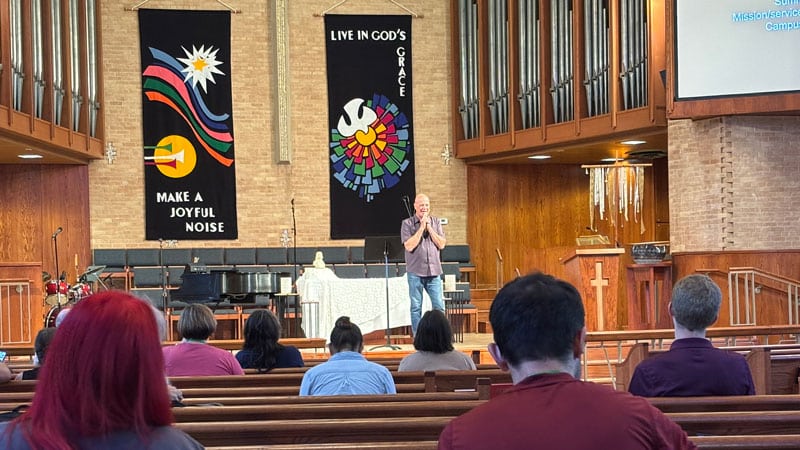
Keynote speaker author Brian McLaren speaks to campus minsters at the UMCMA Summer Institute, held July 15-18 at White Rock UMC in Dallas. Photo by Philip Wingeier-Rayo
Keynote speaker and author Brian McLaren highlighted the epidemic of loneliness in the United States today compounded by a lack of social skills — an impact of the COVID-19 pandemic. Students nowadays communicate through their devices and struggle with face-to-face interactions. The typical 18-year-old college first-year was born in 2007, the year the iPhone was launched.[4] Too much screen time leads to loneliness and a lack of social skills, contributing to public health challenges.[5]
Campus ministers are called to provide a welcoming space where students can connect with God and one another, grow as individuals and develop coping skills to deal with the pressures of college. Yet, campus ministers cannot do this alone. Amid budget cuts and the challenges of higher education. I invite you to pray for new and returning college students this fall and consider connecting with a campus ministry near you and ask how you can support its mission.
Philip Wingeier-Rayo is the executive director of education for the General Board of Higher Education and Ministry. Previously, Phil has taught in theological education for 25 years at the Seminario Baez Camargo in Mexico City, Pfeiffer University, Perkins School of Theology, Austin Presbyterian Theological Seminary, and Wesley Theological Seminary, where he served as dean for four years. He is the author of the new book, John Wesley and the Origins of Methodist Missions, (Abingdon 2025).
[1] “Most Teenagers drop out of church when they become young adults,” Lifeway, January 15, 2019, accessed August 24, 2025 https://research.lifeway.com/2019/01/15/most-teenagers-drop-out-of-church-as-young-adults/
[2] “Employment–population ratio 22.5 percent for high school students, 44.3 percent for college students,”
U.S. Bureau of Labor Statistics, August 19, 2024, accessed August 24, 2025 https://www.bls.gov/opub/ted/2024/employment-population-ratio-22-5-percent-for-high-school-students-44-3-percent-for-college-students.htm
[3]“Religious ‘Nones’ in America,” Pew Research Center, January 24, 2024, accessed August 24, 2025, https://www.pewresearch.org/religion/2024/01/24/religious-nones-in-america-who-they-are-and-what-they-believe/
[4] iPhone 1st generation, Wikipedia, accessed August 24, 2025 https://en.wikipedia.org/wiki/IPhone_(1st_generation)
[5] Muppalla SK, Vuppalapati S, Reddy Pulliahgaru A, Sreenivasulu H. “Effects of Excessive Screen Time on Child Development: An Updated Review and Strategies for Management,” Cureus. 2023 Jun 18;15(6):e40608. doi: 10.7759/cureus.40608. PMID: 37476119; PMCID: PMC10353947.
Related Posts
APAMEI Meeting in Manila Focuses on How Methodist Education Can Build a More Just and Peaceful Asia Pacific Region.
Diversity is not just an ideological pursuit. Diversity has a positive, direct impact on our organizations, making them more resilient and creative.
Today is Martin Luther King Jr.’s birthday. He was born in 1929, which would have made him 97 years old today. We remember him as a leader and a prophet. I often wonder what he would say today about the state of our world. Oddly enough, I think we know what his thoughts would be.
